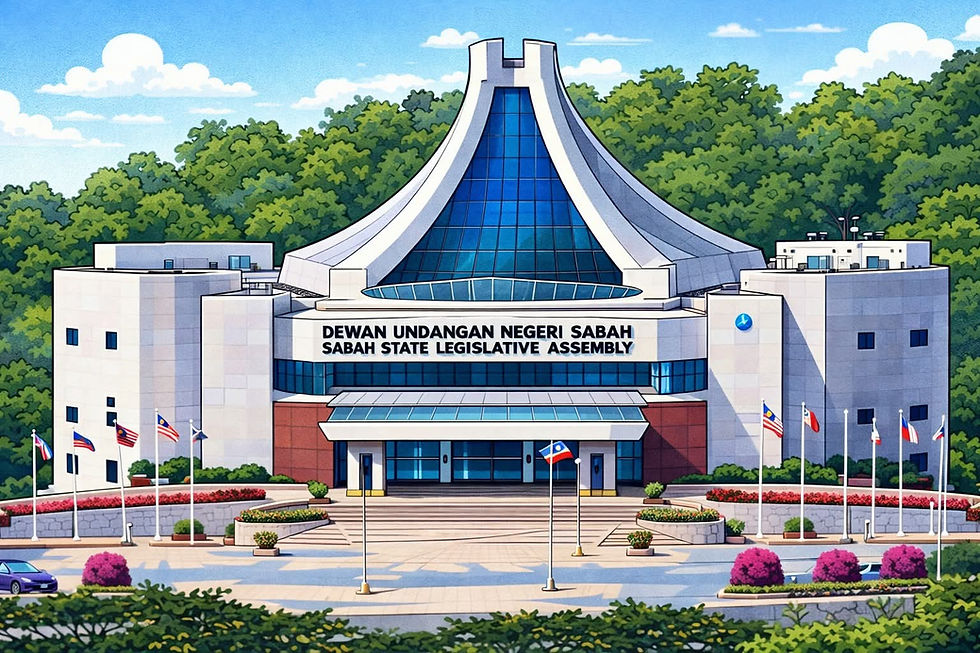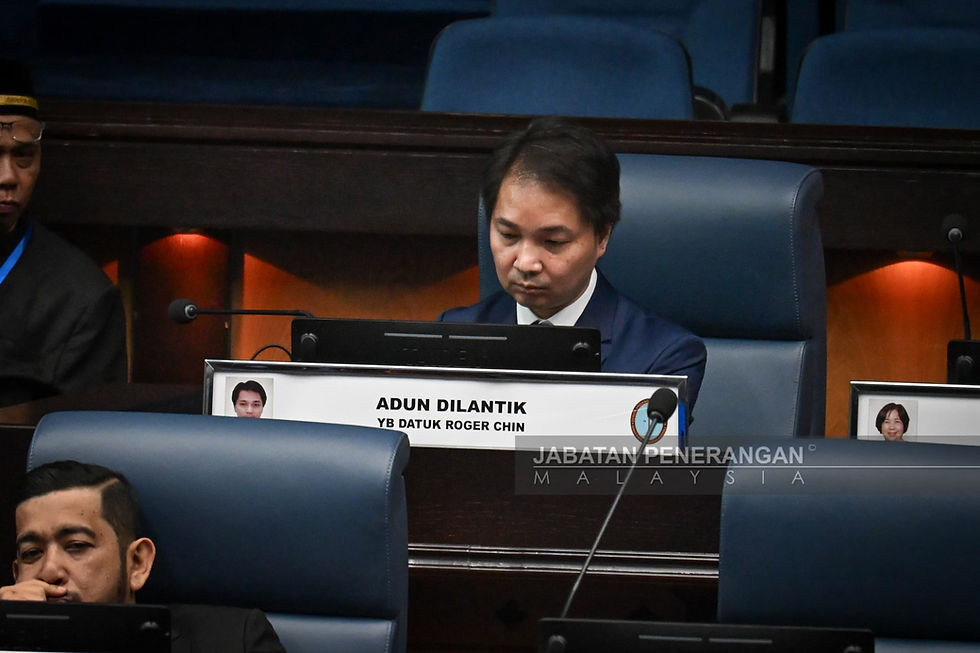A principled move and ‘brilliant strategic sacrifice’
- nabalunews
- Nov 10, 2025
- 3 min read

10 November 2025
To some in Sabah, the resignation of Datuk Ewon Benedick (pic) from his federal Cabinet post as Entrepreneur and Cooperatives Development Minister is seen as a principled move reminiscent of the stand taken by a former state leader.
The late Datuk Peter Mojuntin, who is iconised in the banned book The Golden Son of the Kadazan, is celebrated for championing greater state autonomy and the rights of Sabahans.
He died in the Double Six Tragedy on June 6, 1976, which also claimed the lives of then Chief Minister Tun Fuad Stephens and several state Cabinet members.
Ewon’s decision to step down was rooted in a conflict over Sabah’s constitutional right to 40% of net federal revenue from the state, as enshrined under the Malaysia Agreement 1963 (MA63), following a Kota Kinabalu High Court ruling that affirmed this entitlement.
The resignation was a direct consequence of the legal position taken by the Attorney General’s Chambers (AGC) during the judicial review, which Ewon, as Upko president, viewed as a rejection of Sabah’s fundamental constitutional right.
Ewon said remaining in the Cabinet while the AGC opposed his party’s core MA63 commitment was “awkward” and unsustainable.
The Federal Government has maintained that the AGC must act impartially, and its stance does not necessarily reflect the Cabinet’s political commitment to negotiate the 40% MA63 claim outside of court.
Sources said Ewon decided to quit after colleagues in the Cabinet and Pakatan Harapan (DAP and PKR) pushed for an appeal, despite his threat to resign if the government proceeded.
Although his colleagues subsequently informed him of a U-turn – stating they might not fight for the appeal – it was too late as the Penampang MP and Kadamaian assemblyman had already made up his mind.
If the government ultimately decides against an appeal, credit must be given to the Upko president, whose principled resignation successfully applied pressure on the move.
The immediate impact of Ewon’s resignation is a major change in the political dynamics of the upcoming Sabah polls, establishing Upko as a leading local party committed to its “Sabah First” cause.
Upko now has a legitimate claim to be among the local parties vying to champion Sabah’s rights.
The others include Parti Warisan with its solo move for all 73 seats, Sabah STAR and SAPP, which quit the GRS coalition as it had an electoral pact with Pakatan, and PBS, which is invoking the Spirit of 2025 (that its fight is the same, but with a new generation of leaders).
Ewon’s move has put significant pressure on Warisan, which has long claimed to champion Sabahan interests.
It also triggered public debate on whether Warisan vice-president Datuk Yusof Apdal – brother of party president Datuk Seri Shafie Apdal – should also resign his post as Deputy Science, Technology and Innovation Minister.
Crucially, observers view Ewon’s move as a brilliant strategic sacrifice that generates a powerful “Sabah First” narrative, effectively rebranding Upko as the party that “berani lawan” (dares to fight) for state rights, an appeal that strongly resonates with Sabahans who demand a stronger “look-out-for-Sabah” position.
This sacrifice instantly positions the Upko president as a principled heroic figure, significantly increasing Ewon’s profile and name recognition, thereby building support for Upko candidates.
Ewon’s exit marks the third resignation from Prime Minister Datuk Seri Anwar Ibrahim’s Cabinet.
Datuk Seri Rafizi Ramli (Economy Minister) and Nik Nazmi Nik Ahmad (Natural Resources and Environmental Sustainability Minister) stepped down in May after losing key posts in the PKR elections.
The latest resignation also underscores Sabah’s influence on federal politics: should Upko’s two MPs – Ewon and Datuk Seri Wilfred Madius Tangau (Tuaran) – leave Pakatan, the coalition’s 81 seats in the Dewan Rakyat would be reduced, affecting the Federal Government’s majority.
Upko, which is expected to contest at least 12 seats, has effectively turned the campaign into a referendum in each state constituency on how serious Sabahans are in demanding their 40% revenue entitlement.
The question now is whether voters will reward Ewon and Upko for sacrificing federal power to defend state rights. By PHILIP GOLINGAI
The Star


















Comments